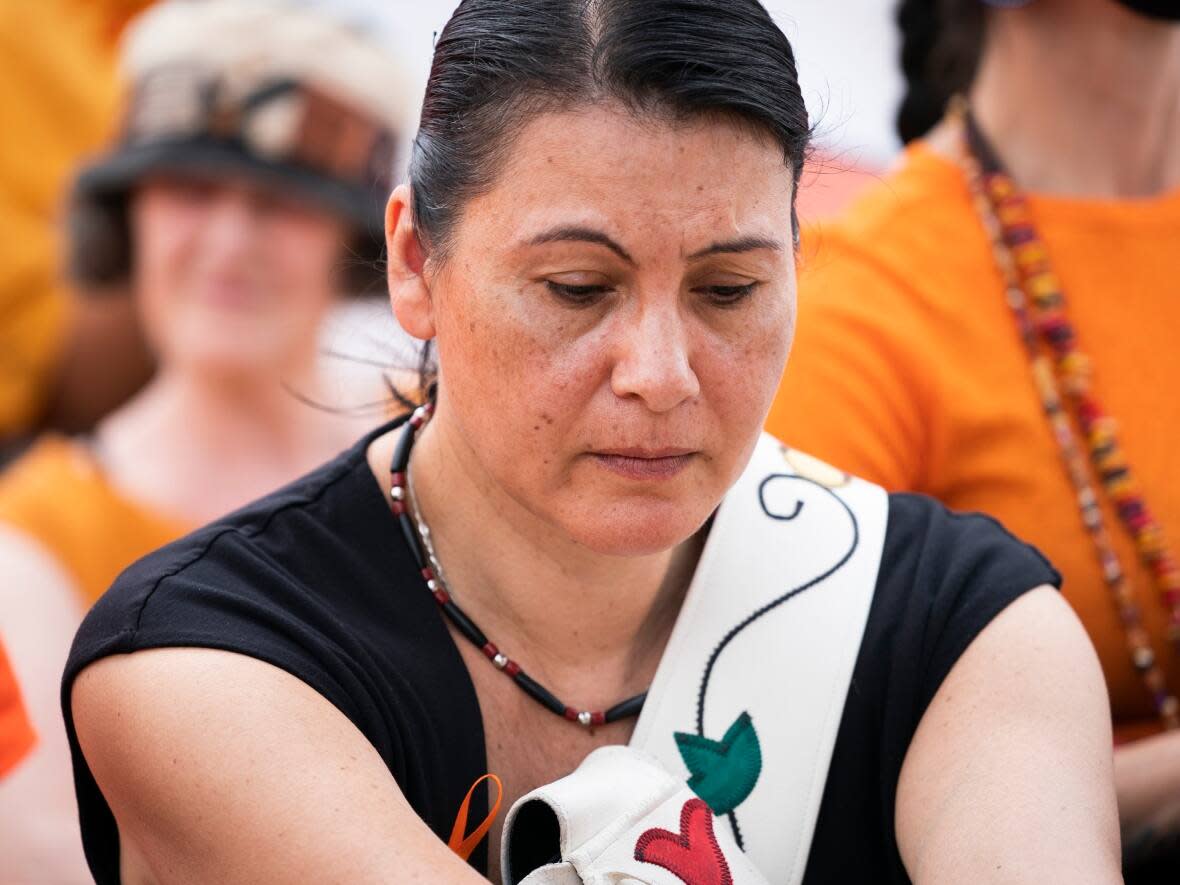Montreal Native Women's Shelter seeks inquiry into youth protection

The Montreal Native Women's Shelter is asking Quebec's Human Rights and Youth Rights Commission to launch a public inquiry into the hiring and treatment of Indigenous people at Batshaw Youth and Family Services.
"This is not an easy day for me," the shelter's executive director, Nakuset, said Tuesday, shaking her head and sounding resigned.
She says filing a formal request with the province felt like the only way the West Island anglophone youth protection agency would address any of the issues Nakuset and her organization have been raising for years.
"We had a collaboration agreement with Batshaw from eight years ago," she said. "We have worked tirelessly with them to try to create all different kinds of programming, services, tools for them to work with the Indigenous community."
"We've made so many efforts to try and help them and it's just fallen on deaf ears."
In September, the shelter and its research team cut ties with a Batshaw advisory committee studying how to improve youth protection in Montreal.
Nakuset and her co-workers say it's "hard to fathom" how none of the recommendations from numerous reports, and commissions — dating back to the 2015 Truth and Reconciliation Commission — have been implemented yet.
Systemic discrimination
"When we talk about systemic discrimination, it comes in many different forms, from the social workers but even from the lawyers," Nakuset said.
"The lawyers, during the youth protection court, will almost shame the mothers. And again, it's our family care workers that have to pull them aside and say, 'This is a very stressful situation and you might want to change your language.'"
Nakuset says Indigenous women with children in the youth protection system are often scared to speak out.
"It's devastating and it's almost become normalized," she said. "If we ask one of the moms to hold the social workers accountable they'll only do it in an anonymous fashion because they are afraid."
"When you have an institution that has your children ... they're afraid, well, maybe I won't get that visit or maybe something will happen."
'Work in progress' says Batshaw
Judy Martin is a board member of Batshaw, Montreal's West Island youth protection authority. She says she was disappointed to see the Native Women's Shelter leave the advisory committee and file a request for a public inquiry.
"I've been a volunteer for 32 years," she said, "so I can speak confidently in telling you and the community that cultural sensitivity and diversity have been at the forefront of everything that we do."
Martin says while it might not be moving as fast as some would like, Batshaw is working to implement the federal and provincial recommendations to improve its relationship with Indigenous people and communities.
"It takes time to implement everything, particularly when you have staffing shortages and you're in the middle of a pandemic," she said, "but it is a work in progress."
Martin says youth protection workers have to make difficult decisions on a daily basis, and while the public might not understand or agree with some of those decisions, keeping children and families safe is their top priority.
She says the Native Women's Shelter is still working with some of Batshaw's social workers, and the youth protection agency will continue to reach out.
"We don't know everything and we need people to help us and work together, rather than against us," she said.
"Sometimes you have to work a little harder to bring partners back to the table and that is absolutely the intention the CIUSSS has with the Native Women's Shelter."

Hoping for change
Fo Niemi of the Center for Research-Action on Race Relations helped the shelter file the request.
Niemi says the provincial commission has the power to decide to launch an inquiry if it believes there are situations of discrimination, harassment and exploitation within the youth protection agency.
"When they launch this inquiry — and we hope they will launch an inquiry soon — we ask that it involve Indigenous communities and organizations in the process," he said.
Niemi points out that the commission's findings are not legally binding.
"But hopefully they will be enforced by the different provincial authorities involved."
And Nakuset says it won't be easy, challenging Batshaw's practices in such a public manner.
"We're afraid to do these kinds of things, to advocate on behalf of our people, because we don't want the women and children to be victimized by it. But I feel like we're going in a good place."

 Yahoo Movies
Yahoo Movies 
